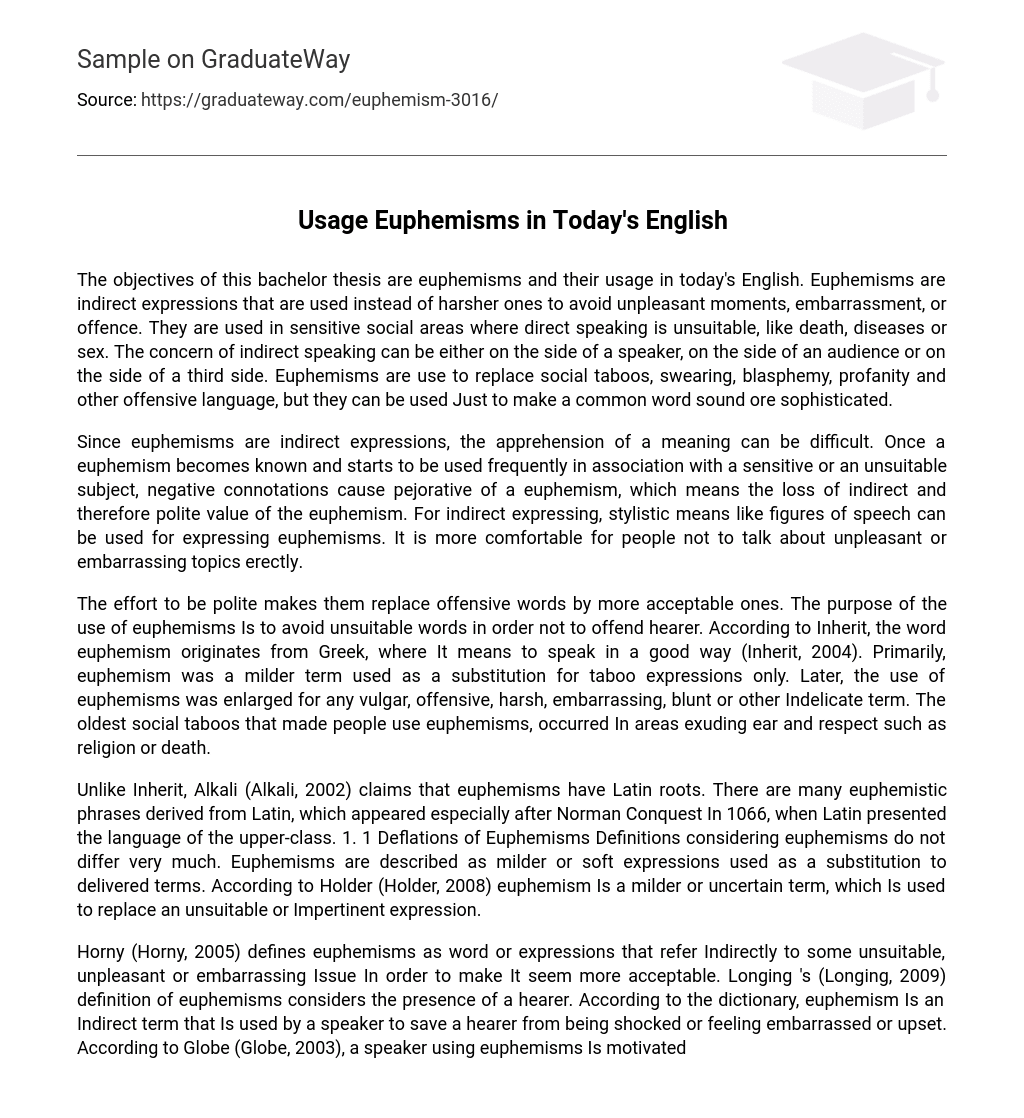The objectives of this bachelor thesis are euphemisms and their usage in today’s English. Euphemisms are indirect expressions that are used instead of harsher ones to avoid unpleasant moments, embarrassment, or offence. They are used in sensitive social areas where direct speaking is unsuitable, like death, diseases or sex. The concern of indirect speaking can be either on the side of a speaker, on the side of an audience or on the side of a third side. Euphemisms are use to replace social taboos, swearing, blasphemy, profanity and other offensive language, but they can be used Just to make a common word sound ore sophisticated.
Since euphemisms are indirect expressions, the apprehension of a meaning can be difficult. Once a euphemism becomes known and starts to be used frequently in association with a sensitive or an unsuitable subject, negative connotations cause pejorative of a euphemism, which means the loss of indirect and therefore polite value of the euphemism. For indirect expressing, stylistic means like figures of speech can be used for expressing euphemisms. It is more comfortable for people not to talk about unpleasant or embarrassing topics erectly.
The effort to be polite makes them replace offensive words by more acceptable ones. The purpose of the use of euphemisms Is to avoid unsuitable words in order not to offend hearer. According to Inherit, the word euphemism originates from Greek, where It means to speak in a good way (Inherit, 2004). Primarily, euphemism was a milder term used as a substitution for taboo expressions only. Later, the use of euphemisms was enlarged for any vulgar, offensive, harsh, embarrassing, blunt or other Indelicate term. The oldest social taboos that made people use euphemisms, occurred In areas exuding ear and respect such as religion or death.
Unlike Inherit, Alkali (Alkali, 2002) claims that euphemisms have Latin roots. There are many euphemistic phrases derived from Latin, which appeared especially after Norman Conquest In 1066, when Latin presented the language of the upper-class. 1. 1 Deflations of Euphemisms Definitions considering euphemisms do not differ very much. Euphemisms are described as milder or soft expressions used as a substitution to delivered terms. According to Holder (Holder, 2008) euphemism Is a milder or uncertain term, which Is used to replace an unsuitable or Impertinent expression.
Horny (Horny, 2005) defines euphemisms as word or expressions that refer Indirectly to some unsuitable, unpleasant or embarrassing Issue In order to make It seem more acceptable. Longing ‘s (Longing, 2009) definition of euphemisms considers the presence of a hearer. According to the dictionary, euphemism Is an Indirect term that Is used by a speaker to save a hearer from being shocked or feeling embarrassed or upset. According to Globe (Globe, 2003), a speaker using euphemisms Is motivated not only by a hearer. Globe claims that here exists a term “face”. “Face” means how a speaker mentioning a subject





